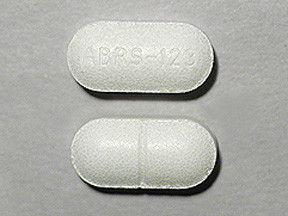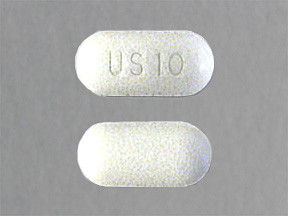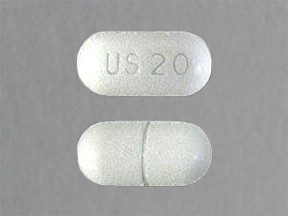POTASSIUM EXTENDED-RELEASE DISPERSIBLE TABLET - ORAL
PHONETIC PRONUNCIATION: (poe-TAS-ee-um)
COMMON BRAND NAME(S): K-Dur, Klor-Con M
GENERIC NAME(S): potassium chloride
Uses
USES: This medication is a mineral supplement used to treat or prevent low amounts of potassium in the blood. A normal level of potassium in the blood is important. Potassium helps your cells, kidneys, heart, muscles, and nerves work properly. Most people get enough potassium by eating a well-balanced diet. Some conditions that can lower your body's potassium level include severe prolonged diarrhea and vomiting, hormone problems such as hyperaldosteronism, or treatment with "water pills"/diuretics.
How to use POTASSIUM EXTENDED-RELEASE DISPERSIBLE TABLET - ORAL
HOW TO USE: Take this medication by mouth as directed by your doctor. To prevent stomach upset, take each dose with a meal and a full glass of water (8 ounces/240 milliliters) unless your doctor directs you otherwise. Do not lie down for at least 10 minutes after taking this medication. Do not crush, chew, or suck on the tablets. Doing so can release all of the drug at once, increasing the risk of side effects. If you have trouble swallowing the tablets, you may break the tablet in half and take one half with a glass of water; then take the other half tablet with another glass of water. Another choice is to dissolve the tablet in a half glass of water (4 ounces/120 milliliters) before taking it. After the tablet dissolves (about 2 minutes), stir the mixture for 30 seconds then drink all the liquid. Add one more ounce (30 milliliters) of water to the glass, swirl, and drink. Repeat one more time to make sure you are getting all of the drug. Use only water for mixing, and do not prepare the mixture ahead of time. Ask your doctor or pharmacist if you have any questions. Take this medication regularly to get the most benefit from it. To help you remember, take it at the same time(s) each day. The dosage is based on your medical condition and response to treatment. Do not increase your dose or take it more often than prescribed. Do not take more than 20 milliequivalents per dose. Tell your doctor if your condition does not improve or if you have symptoms of low potassium in the blood (such as irregular heartbeat, muscle weakness/cramps).
Side Effects
Precautions
Interactions
Overdose
Images

- color
- white
- shape
- oblong
- imprint
- ABRS-123

- color
- white
- shape
- oblong
- imprint
- ABRS-123

- color
- white
- shape
- oblong
- imprint
- ABRS-123
Reviews
Faq for POTASSIUM EXTENDED-RELEASE DISPERSIBLE TABLET - ORAL
Potassium extended-release dispersible tablet is a medication taken orally to supplement potassium in your body. It helps maintain the balance of electrolytes in your cells, nerves, and muscles.
Potassium is an essential mineral that plays a vital role in various bodily functions, including maintaining fluid and electrolyte balance, supporting muscle function, and regulating heartbeat. Some medical conditions, certain medications, or a low-potassium diet can lead to potassium deficiency, making supplementation necessary.
This medication is commonly used to prevent or treat low potassium levels in individuals with conditions like chronic diarrhea, vomiting, certain kidney diseases, and the use of specific diuretic medications.
It is recommended to take this medication with a meal or immediately after eating, preferably with a full glass of water or liquid. The tablet should be dispersed in water before consuming. Do not crush, chew, or break the tablet.
Common side effects may include diarrhea, stomach upset, nausea, vomiting, or abdominal pain. However, if you experience severe symptoms such as muscle weakness, slow or irregular heartbeat, or difficulty breathing, seek immediate medical attention.
Inform your healthcare provider about any allergies, medical conditions, or medications you are currently taking before starting potassium supplementation. It is important to closely monitor your potassium levels and follow the recommended dosage to avoid potassium overload.
It is essential to consult your healthcare provider before taking any medication during pregnancy or breastfeeding. They can evaluate the potential risks and benefits specific to your situation.
If you miss a dose, take it as soon as you remember. However, if it is close to your next scheduled dose, skip the missed dose and continue with your regular dosing schedule. Do not double the dose to make up for the missed one.
Store the medication at room temperature away from moisture and heat. Keep it out of the reach of children and pets.
Disclaimer
IMPORTANT: HOW TO USE THIS INFORMATION: This is a summary and does NOT have all possible information about this product. This information does not assure that this product is safe, effective, or appropriate for you. This information is not individual medical advice and does not substitute for the advice of your health care professional. Always ask your health care professional for complete information about this product and your specific health needs.


For adema: This is a big pill so if you have trouble swallowing I would suggest breaking it in half. I was fine at first, and then after a while I started feeling sick. Nausea and lighthead. I had to lay down and rest because I lost balance. Along with this medication I was given a diuretic to take with it. So we could have been a mixture of both pills or just one that made me sick.
By Countrygirl on 10 Jul, 2022